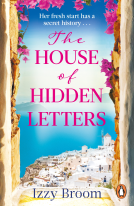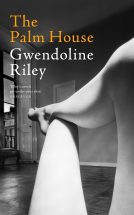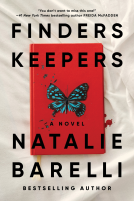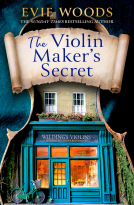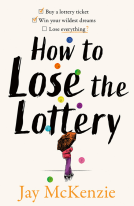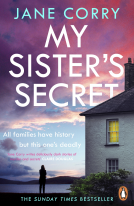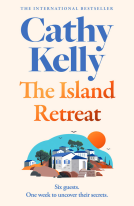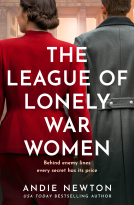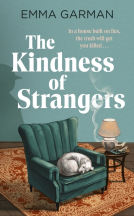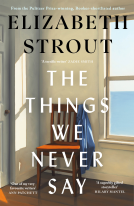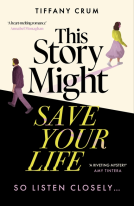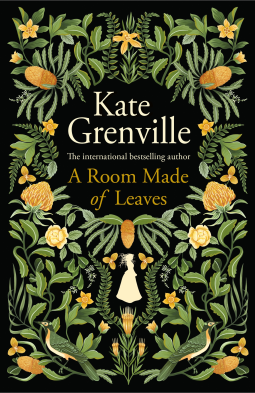
A Room Made of Leaves
by Kate Grenville
This title was previously available on NetGalley and is now archived.
Send NetGalley books directly to your Kindle or Kindle app
1
To read on a Kindle or Kindle app, please add kindle@netgalley.com as an approved email address to receive files in your Amazon account. Click here for step-by-step instructions.
2
Also find your Kindle email address within your Amazon account, and enter it here.
Pub Date 6 Aug 2020 | Archive Date 30 Jul 2020
Talking about this book? Use #ARoommadeofLeaves #NetGalley. More hashtag tips!
Description
This beautifully wrought novel, from the author of The Secret River, tells a story of passion and resilience, giving voice to a woman silenced by history.
It is 1788. Twenty-one-year-old Elizabeth is hungry for life but, as the ward of a Devon clergyman, knows she has few prospects. When proud, scarred soldier John Macarthur promises her the earth one midsummer’s night, she believes him.
But Elizabeth soon realises she has made a terrible mistake. Her new husband is reckless, tormented, driven by some dark rage at the world. He tells her he is to take up a position as Lieutenant in a New South Wales penal colony and she has no choice but to go. Sailing for six months to the far side of the globe with a child growing inside her, she arrives to find Sydney Town a brutal, dusty, hungry place of makeshift shelters, failing crops, scheming and rumours.
All her life she has learned to be obliging, to fold herself up small. Now, in the vast landscapes of an unknown continent, Elizabeth has to discover a strength she never imagined, and passions she could never express.
Inspired by the real life of a remarkable woman, this is an extraordinarily rich, beautifully wrought novel of resilience, courage and the mystery of human desire.
Advance Praise
Praise for The Secret River:
'An outstanding study of cultures in collision . . . a chilling, meticulous account of the sorrows and evils of colonialism . . . Kate Grenville is a sophisticated writer'
Guardian
'Splendidly paced, passionate and disturbing'
The Times
'This is a novel everyone should read'
Irish Times
'A vivid and moving portrayal of poverty, struggle and the search for peace'
Independent
'Beautifully written'
Financial Times
'Sumptuous . . . Brilliantly atmospheric'
Independent on Sunday
'A rich novel of character'
Sunday Telegraph
'A magnificent novel - an unflinching exploration of modern Australia's origins'
New Yorker
'Here is someone who can really write'
PETER CAREY
'Reading The Secret River may put you off anything less accomplished for a while'
Daily Express
'This is a moving account of the brutal collision between two cultures; but it is the vivid evocation of the harshly beautiful landscape that is the novel's outstanding achievement'
Mail on Sunday
'Kate Grenville has transformed the Australian myth into a dazzling fiction of universal appeal. It is a pleasure to be able to praise a true novelist'
PATRICK WHITE
'Fiercely intelligent . . . the novel works on two levels: the historical and particular, and the philosophical, bringing into question the extent to which it is possible to own anything, even one's life'
Times Literary Supplement
'A richly layered tale of a fierce and unforgiving backdrop, the quest for its ownership, and the brutal price paid by those who would colonise it vividly described . . . a dramatic, beautiful work'
Scotland on Sunday
Available Editions
| EDITION | Hardcover |
| ISBN | 9781838851231 |
| PRICE | £16.99 (GBP) |
Average rating from 97 members
Featured Reviews
 Sarah T, Reviewer
Sarah T, Reviewer
A woman from Devon makes one mistake and ends up marrying a man she does not like, and having to move to Australia with him. This book tells her story as she settles in New South Wales, learns to manage her husband and makes a life for herself and her children in the colony.
I enjoyed the descriptions of Sydney, the homestead and the politics of the early settlers. This period of history is a favourite with Kate Grenville. Fans may feel that they are in familiar territory as some of the characters and scenarios have previously made appearances in 'The Secret River' however sometimes we all need a friendly comfort blanket, and this is an enjoyable, well written and laid out read. A female perspective adds a different view on the men's scheming and how they dealt with the native people.
 Aine T, Media/Journalist
Aine T, Media/Journalist
What do you do when you realise you’ve made a marriage mistake? It’s too late to reverse the situation, even more so when your new husband insists you travel with him from England to New South Wales. Elizabeth is pregnant and alone, and arrives in Australia feeling lost and afraid. But can a new country, and a new continent, offer another way of looking at things? I love that Kate’s story was inspired by real life and found it to be an intense read, and one I was the better for having read.
Thank you to Netgalley for an advance reading copy.
‘A Room Made of Leaves’ is a fictional account of the actual Elizabeth Macarthur who travelled to New South Wales with her soldier husband and infant son in 1790. From these inauspicious and hazardous beginnings, she became instrumental in setting up and managing the Australian wool industry. However, this novel mentions comparatively little of what Elizabeth is best remembered for, focusing more on her ability to adapt to life in what is very much a man’s world.
Elizabeth is a sympathetic woman who can see behind the crude labels of ‘convict’ and ‘native’. She is intelligent, inquisitive and resilient. Through her Kate Grenville paints a portrait of a successful dissembler. She learns to present herself as inferior and biddable in order to manage her difficult husband’s moods and wayward plans so that she might carve out a purposeful and satisfying life for herself far away from friends and family. Her ‘room made of leaves’ is as necessary to her as Woolf’s ‘A Room of One’s Own’: a peaceful haven giving her time for thought and where she can be truly herself.
Interested in the culture of the indigenous people whose land the British are appropriating, and sensitive to the treatment of who live near her sheep farm, gradually Elizabeth faces up to the fact that, ‘Like most of the other newcomers, in the past I never gave a proper name to what I was doing…I have been a thief for every one of those forty years.’ She understands that her acknowledgement of her ignorant behaviour ‘repairs no part of the sorrow of it, I know. But it is the first thing, the first hard truth, without which no repair can ever be hoped for.’
This is an engaging novel, perhaps particularly so for those who have an interest in Australia’s early history. But to read it as merely an approximation of history would be a mistake. It is the business of the ways in which truth is presented, that we can suggest much through a well-crafted phrase or represent facts in a way to benefit the teller, that this story comes back to time and time again. Elizabeth and the servant convicts working for her do not have the luxury of saying what they really think. She is as much subjugated by her husband as are they. Nevertheless, that she is able to grow a thriving business from scant beginnings in such a tough environment is a celebration of the human spirit as well as Grenville’s tribute to a remarkable woman.
My thanks to NetGalley and Canongate for a copy of this novel in exchange for a fair review.
The usual mistake in a young woman's life leads to a marriage of unhappiness. But one where Mrs McArthur survives and even prospers. The story of a voyage to Australia and the early years of settlement. It's a really well written, thought out and sensitive book seen from Mrs McArthurs point of view. My only gripe is that I wish it had continued to her years of self agency, rather than stopping as it did.
 Lynne P, Reviewer
Lynne P, Reviewer
This is historical fiction at its best. This is a really emotional and beautiful read about one women’s journey to Australia. It’s a very honest and brutal story in many ways but it is told at the same time with humour, humility and understanding. It shines a light on what life would have been like for a woman in the early days of the settlement in Australia and the relationship between the early settlers and the Aboriginal people. It is a really evocative piece of fiction that is inspired by the real letters of Elizabeth Macarthur and by the things that she they didn’t say.
Elizabeth like many young girls finds herself excited by the possibilities of a new life with a young soldier when she meets John Macarthur but she soon realises that the reality is not what she expected. Her new husband Is a difficult man always following a new dream and devising a new scheme which sees her eventually in New South Wales as John takes up a position as Lieutenant at a penal colony. She arrives to find Sydney a very brutal and forlorn place. As Elizabeth learns to adjust to her new surroundings and life with her husband she discovers new strengths and desires she never imagined.
 Geraldine S, Educator
Geraldine S, Educator
Elizabeth Macarthur, the narrator of this book, is definitely one of those people I would invite to a dinner party if I could invite anyone I wanted from any time. She would have many stories to tell although, to quote her words, 'I would not believe too quickly' all that she had to say. She was born in Devon in 1766. At the age of 22 she emigrated to Australia with her husband John and his regiment, where she became the first soldier's wife to settle in New South Wales. Kate Grenville's fictional story of Elizabeth's life is written as if from Elizabeth's own papers although this is merely a way of telling the tale. However it has clearly been thoroughly researched and in addition to providing the story of one woman it gives the reader insight into late 18th/early 19th century Australia, the treatment of the Aboriginal peoples by white settlers, the development of sheep farming and the relationship between the British in Australia and the British government in London. The book makes clear that Elizabeth's husband was a very ambitious man with mental health problems. He is often credited as being the founder of the Australian wool industry but Grenville postulates that in fact Elizabeth had a much bigger role to play than John in the success of sheep farming in Australia. I thoroughly enjoyed reading this book about a character whom I had never heard of before and a time I did not know a great deal about. I really appreciated the way in which Grenville showed Elizabeth as a strong minded woman who was able to use both spoken and written language to meet her own needs despite the difficulties of her life with John Macarthur. I am now keen to read more by the author. I received a complimentary ARC of this book from the publisher, Canongate, via Net Galley, in return for an honest review.
 Mary Lou H, Reviewer
Mary Lou H, Reviewer
Elizabeth Veale makes a hasty but necessary marriage to John Macarthur. Macarthur is cold and ambitious, and his sole aim is to do whatever it takes to rise to the top and shake off the shame of his family background in trade. Now in debt from having purchased his commission, he sees a chance of promotion in joining the New South Wales Corps, formed to guard the convict colony newly established there.
Elizabeth is powerless at the hands of her bullying husband but avoids despair by attempting to ‘outwit and outwait’ this damaged man and survive by playing him at his own long game.
A Room made of Leaves is Kate Grenville’s own fleshing out of the little that is known of Elizabeth MacArthur’s life. Written in Elizabeth’s voice and based on her journal apparently uncovered after her death, it is a quiet and cautious account. Always alert to the deviousness of her husband and his ability to destroy them both, this becomes the focus. The backdrop of the sufferings of the convicts and the indigenous peoples displaced from their lands is here. There are many of the beautifully descriptive pieces at which this writer excels. But this is Elizabeth Macarthur’s writing and her main concern is the endurance of life within her loveless marriage.
This novel is a beautifully balanced and captivating book. Elizabeth finds the gift of love in unlikely places and works out how to discourage unwanted attentions by feigning dullness at others. But mainly she learns the art of steering her manipulative husband into less treacherous waters than he plans.
 Andrea H, Book Trade Professional
Andrea H, Book Trade Professional
My thanks to Canongate, Kate Grenville and NetGalley for the ARC of A ROOM MADE OF LEAVES.
A very interesting rendition of life as a new settler in New South Wales. An intriguing tale of modern thinking at a time when women were far from emancipation. Very different. I loved it.
Elizabeth MacArthur, young and with few prospects in the late 1700s, finds herself married to a bully, and en route to Australia where her new husband is to be captain in one of the penal colonies, and aspires to make his fortune.
The characters are real, and John MacArthur was clearly well known in Australian history. The story is told in the voice of Elizabeth, giving an interesting and intimate female perspective to a hard yet often exciting life.
As you'd imagine, a woman's role is to support her husband and provide children - but Elizabeth's words give us more insight into the emotional highs and lows, and where and how she can find solace.
The characters are well fleshed out and vivid, the scenery described beautifully. I didn't see the twist at the end coming (although really I should have!), it was a nice touch. Could not put this down.
 Judith S, Reviewer
Judith S, Reviewer
Fictional account of the early life of Elizabeth MacArthur, one of the early figures in the Australian wool trade. Like a lot of women of her generation very little is known of her but Grenville has woven a fascinating tale of the events that might have led her from poor Devonian farmer’s daughter to the wife of soldier who became a wealthy Australian wool baron. Forced into a loveless marriage with John McArthur a man of quick temper and an obsession with rising in society at any cost, she knows she must use all her cunning to manage his erratic behaviour and fit into the new world they are carving out for themselves in Australia. Excellent historical fiction showing the lives of the early Australian settlers in particular the near invisibility of women and more poignantly at a time of BLM protests, the appalling treatment of the indigenous Australians who Elizabeth quickly realises know a lot more intelligent than the settlers give them credit for.
As a schoolchild in Australia, the name of John Macarthur was one of the many I learned by rote as part of the telling of our country’s history. It never occurred to any of us that he must have had a wife and this wonderful romp through Elizabeth’s perspective on the early years of the colony is hugely enjoyable. The story is not without tragedy, grim reality or emotional extremes, but it is utterly compelling and real, and conveys the characters of Elizabeth and her volatile, pompous, rather ridiculous husband brilliantly. The skill of Kate Grenville in blending this mixture of some fact and much fiction is to be marvelled at and the writing style is vivid and often beautiful. This is very likely to be my book of the year!
 Pam S, Reviewer
Pam S, Reviewer
This book is a really well written historical fiction inspired by a real woman. She made a wrong marriage and has to go to Australia with her husband and child. She therefore has a lot of difficulty in adjusting and is quite lonely.
It was very emotional to read about this as a woman, but even if it's fictional, I'm glad Elizabeth MacArthur had a voice.
I would highly recommend if you like historical fiction and memoirs.
Thanks a lot to NG and the publisher for this copy.
 Roberta C, Educator
Roberta C, Educator
I was very keen to read this, having really enjoyed the Thornhill series by the same author. Where those books focused a little more on the landscape of Australia, this was focused more on the character of Mrs MacArthur, based on a real woman. I loved the way we learned a lot about her early life in Devon, and her voyage to Australia with her husband. The focus on the female plight of the time, being forced into marriage and childbirth, was reflected later in the treatment of the convicts and Aboriginal people, although these lacked the depth given to the main woman. The story was atmospheric and well told, and her tumultuous relationship was sympathetically described.
 Reviewer 629472
Reviewer 629472
My first Kate Grenville read and I loved it.
A fictionalised account of life in Australia, through the memoir of the remarkable Elizabeth MacArthur (1776-1850). Born in Devon, she made one mistake and ended up married to John MacArthur, a ruthless bully who dragged her on a nightmare voyage to farm in New South Wales. She reveals her true feelings married to her arrogant and unscrupulous husband, but her steadfast courage, knowledge of sheep farming and intelligence enable her to deal with him and lead a fulfilling and richly satisfying life with her children.
Thirsty for knowledge, and passionate, her relationship with Mr Dawes and her respect for the indigenous people challenges the expected behaviour of the stereotypical woman of her time.
The title of the book is inspired; the natural descriptions profound, sensual, spiritual, and touch on the spiritual and inner sensibilities of Elizabeth.
Thank you #NetGalley and #CanonGate for my pre-release download.
 Katharine L, Media/Journalist
Katharine L, Media/Journalist
Kate Grenville continues to write about Australia, this time going back to the earliest settlers and using the story told by Elizabeth Macarthur, wife of one of the first soldiers to be sent out there.
Elizabeth is a girl from Dorset who ends up married to a very junior Army officer who goes to Sydney as his career in the UK is not progressing as he would hope. They arrive in the newly established colony after an eventful voyage, during which Elizabeth gives birth to a son. Life in Sydney is harsh - the settlers rely on supplies brought by sea as they do not know how to farm the unfamiliar terrain, so are often close to starvation. Her husband is an unpleasant and highly ambitious man, who cares little for his wife and offends many of his fellow soldiers. However, Elizabeth makes the best of her situation, learning how to outwit her husband to make her life more bearable.
Well written, with a twist at the end, this is a great book - thoroughly recommended.
 Brian K, Reviewer
Brian K, Reviewer
Using the device of a supposed cache of recently discovered letters, Kate Grenville imagines the private life of Elizabeth Macarthur, whose husband, John, was a pioneer of the Australian wool industry and who is widely regarded as one of the most significant figures in his country's history. However, in Kate Grenville's story his success is largely due to the resourcefulness of his wife and her skill in managing his difficult personality.
At the novel's heart is the imposing backdrop of the Australian countryside, beautiful but uncompromising. Against this backdrop she reworks many of the themes of her earlier books including the experience of knowing oneself to be regarded by the world as unattractive, the unexpected arrival of love when all hope of it has been abandoned, and the unrecognised and buried atrocities of early Australian history.
There is a such an authenticity about Kate Grenville's writing. It comes from the patient accumulation of small detail that mimics lived experience. Bit by bit she unpicks the story Australia has told itself, replacing it with one that contains room for the voices that have been omitted.
 Titivillus B, Educator
Titivillus B, Educator
Kate Grenville brings the protagonist to life, exploring the pressures of a woman’s role in the 1700s.
What an extraordinary thing, to be one of the first white people to arrive in Sydney at the tail end of the eighteenth century. Kate Grenville takes the facts about Elizabeth McArthur, who was an early settler, and gives her a voice.
Elizabeth is a lovely character form the start, lively and impulsive and totally unsuited to living int he straightjacket of English society. Following a single mistake, she finds herself chained to a man she neither likes nor loves, and determines to make the best of it.
The book is well-paced and the characters likeable when told in Elizabeth's strong voice, and the representation of what life must have been like for those early arrivals is fascinating.
I very much enjoyed the way the personal is brought to the fore while set beautifully in an historical setting, I was transported to another time and spent my whole time rooting for Elizabeth as she makes her own space and time for herself and her children.
 Hilary W, Reviewer
Hilary W, Reviewer
In this latest historical novel by Australian author Kate Grenville we are presented with a tale – the tale? – of a real wife and early white immigrant into the country. She – married to a young military ensign - arrived on the second convict ship into what became known as Sydney Harbour convict colony. Grenville uses this novel to explore the life of one woman in extraordinary circumstances – a woman who like most others has been airbrushed out of regular historical accounts. She explores the particular difficulties that the few women would face in this a strange land under military control, with disease, childbirth, regular shortages, no real legal status or protection and little family support. In a new country that was thousands of miles and months away from the “Motherland”.
We know that some of the “new” men managed to rise to prominence, wealth and power over the early decades of British rule. Some came into the country with extra privilege and wealth of course, but others didn’t. Grenville will explore exactly what types of men will rise to the top in those situations and how and why. As this is a novel primarily about a woman Elizabeth Macarthur the extent that this success could have been based on the work of others, often their partners and wives, much of it unacknowledged then as now. But in a new penal colony where men predominated, where control was based on coercion and extreme violence, where the local first people population would be invaded, de-landed and then subjected to genocide extreme behaviour that might not be tolerated in Britain could flourish largely unchecked.
Elizabeth Macarthur, with little family support, already pregnant, is shown entering into marriage with a young man she barely knew back in Devon in the latter part of the 18th century. Her husband, a young military ensign, has built his life on a series of lies about his background and a grandiose façade he can only maintain with difficulty. But behind this we are shown a man not just insecure and unpleasant, but unstable and at times psychotic as well. We are given full view of a violent and controlling marriage that would be clearly recognisable to many women today. But the underlying aspect of living with a truly disturbed and out of control man is truly chilling as well. Elizabeth will not just live with and through this but she is presented as the reason why the Macarthur family survived and flourished.
Readers of a certain age will remember geography lessons and being told that one of the great reasons for the success of Australia was the new development of the production of quality wool. A “high value” crop easy to transport long distances by sea back to Britain and generate income to support other development. But Grenville has asked how an ex-military man with no background in agriculture and who spent great swathes of his professional life away from Australia could have generated this expertise and trade. She lays it at the door of his wife left on the family estate – Elizabeth’s farming background is explored. But in Grenville’s hand it becomes an exploration too of loss through emigration of family, traditions and old places. But furthermore how with finding joy in the new environment and people a person might build the courage and happiness to move on.
This is a wonderful and vibrant novel on so many fronts; and in spite of the less than easy realities behind it, a joy to read. It is so people centred, it has a great sense of place and it is not soft history but it shows the very clear cultural and “values” links between people now and then. It pulls no punches about the violence, injustices and daily difficulties and horrors of life for many, but because Grenville melds her themes, peoples and places so seamlessly it creates a totally believable and immersive whole.
One woman's story as an early Australian settler. This book has such beautifully vivid descriptions of the rugged scenery of New South Wales in the early days of European settlement that you almost feel you are there. When Elizabeth's mother remarries, she makes it clear that her daughter will have to find a new home. With few options available, she goes to live firstly with the local vicar, then marries John Macarthur. Little did she know that he would transport her from Devon to Australia, to live among the few white settlers and their convict servants. Although she briefly finds love with another man in their 'room full of leaves', her life is hard, although her cleverness enables her to influence her husband to her advantage. She is keenly aware that Europeans had stolen their land from the local Aboriginal people but comes to love her new home. Another great novel from Orange Prize-winning author, Kate Grenville.
Another phenomenal book from Kate Grenville. An alternative history to the growth & development of New South Wales. Based loosely on facts and existing documents & letters the tale is told from a woman’s perspective. I enjoyed the writing, the characters and the story.
 Aileen G, Reviewer
Aileen G, Reviewer
What an amazing book. Tells the story of the life a woman could expect in the late 18th century. The answer to which is not much of one. She belonged to her husband - who had no more need to consult her than he would a dog or a horse. Life was to be endured, enjoyment wasn't on the cards to many women. My only complaint was that I wanted to know more of the rest of her life after the book finished.
Loved it
Thanks to Netgalley and the publisher I read a free advance review copy of the book. This review is voluntary, honest and my own opinion.
 Viv R, Reviewer
Viv R, Reviewer
‘A Room Made of Leaves’ by Kate Grenville was a joy to read. So evocative of the era that it made me feel I was alongside Elizabeth all the way. A woman of her time Elizabeth was nevertheless a modern and brave woman.
 Jillian M, Librarian
Jillian M, Librarian
Kate Grenville once again conjures up the all encompassing world of the early settlers in Australia. Featuring a lowly positioned officer McArthur with his pregnant wife Elizabeth as they travel on the high seas for six months to reach their new army posting the story is told eloquently and tellingly from her point of view. The struggles of the early settlers with the many tensions between the native people's and the convicts Elizabeth's insights into the machinations of her husband's unstable mind. She learns to harness and manipulate his moods to their advantage and together they accumulate substantial wealth and estate in their new home. Elizabeth is a dutiful wife who tolerates her husband but finds love and passion in an unexpected place -a room made of leaves providing the discretion and privacy that she needs.
A compelling and gritty read that is a fascinating glimpse into a world we can only imagine, based as it is on detailed research from letters of the time.
A Room Made of Leaves is an intriguing novel about a fascinating period in Australian history.
I devoured this book; it’s an easy read. I would recommend this to anyone looking for a good fast paced book and you might find you can't put this one down!
 Anni S, Reviewer
Anni S, Reviewer
Thanks to Netgalley and Canongate for the opportunity to review this book. It was not what I expected but I thoroughly enjoyed this story of Elizabeth McArthur . Like many women of her time she was forced into an unsuitable marriage swiftly followed by a move to Australia. Her husband was a difficult,complex man driven by self ambition and rage ,taking every opportunity to fight grievances of his own making. Elizabeth was a resourceful, intelligent woman who managed her husband as best she could by guile. This book mainly centred around her early life and her personal struggle to navigate life in spite of James. Very enjoyable.
 Sandra M, Librarian
Sandra M, Librarian
Elizabeth’s story might be familiar to many women throughout time. She has not heeded the warnings of becoming a fallen woman, and finds herself with a soldier husband she neither wants nor loves and must follow him in his relentless ambition and mischief making. Their marriage bed is not filled with passion, but it nevertheless is a duty she cannot avoid. This is based on a true story of a remarkable woman who finds resources to deal with her situation in a time when all too few women had control of their lives. This is a man’s world in gold rush towns of the eighteenth century in Australia, where the natives were ridden off their lands and fell to foreign diseases. The land is full of promise and hardship, and we see both land and native through her eyes.. The author writes in a truly authentic voice of the lure of nature and true feelings, as well as the gulf of displaced people, who like the convicts will never see home again.
This is the story of Elizabeth Veale who, through a momentary lapse, becomes Elizabeth MacArthur. Married to a man who cares little for her and who makes enemies wherever he goes, she finds resources within herself to make a bearable life.
With no option but to follow her husband to Australia, she makes the most of the rough conditions, does her best for her children and develops friendships among the settlers and transported convicts of the growing town of Sydney, New South Wales.
This is a quiet book, steadily telling the story of a woman's survival and ability to thrive in harsh conditions, both physical and emotional. There are beautiful descriptions of the landscape alongside accounts of adversity brought on by Mr MacArthur and his obnoxious ways.
Purporting to be a newly discovered account written by Mrs MacArthur herself, this novel shows us one woman's strength and determination and her ability to win through against all the odds. A wonderful book full of insight and compassion.
 Sarah C, Reviewer
Sarah C, Reviewer
I love Kate Grenville's work anyway, so it was a massive treat to get a copy of this from NetGalley. Thank you.
This is the story of the early days of the wool industry in Australia. Very, very early - Elizabeth MacArthur travels to Australia with her totally unsuitable husband when the colony is still a convict settlement. I guess those early settlers had the choice to hate or to love their new home, to regret England, or embrace Australia. Elizabeth is canny enough to embrace things. She learns to manipulate her husband as much as possible - she's a powerless woman in a man's world.
The heat of Australia, the light, the bush - they shine through this book. Grenville is great at conjuring an atmosphere. She is also constantly aware of the impact of European settlement on the Aboriginal communities, reminding you of what was destroyed as well as created.
This is a great read.
Readers who liked this book also liked:
Elizabeth Arnott
General Fiction (Adult), Historical Fiction, Mystery & Thrillers

